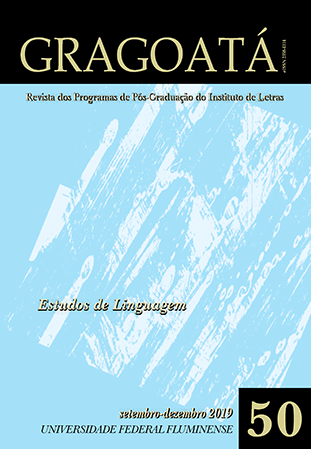A media coup d’oeil: the political cartoon discourse between images and imaginaries
DOI:
https://doi.org/10.22409/gragoata.v24i50.34164Keywords:
Semiolinguistics, Media, Contract of Communication, Socio-discursive Imaginary, Political Cartoon.Abstract
This paper presents a description of discursive genre called political cartoon, based on the assumptions of the Semiolinguistic Theory of Discourse Analysis (CHARAUDEAU, 2010). In this perspective, these multimodal texts are limited to the clauses of a media communicative contract, whose restrictions lead to the production of a commented event, balanced between a double desire to inform and to capture. On the other hand, enjoying the freedom of a humorous and ironic “trace text”, and completely distant from journalistic objectivity, the enunciator explores specific strategies of the appeal of emotion rather than of reason, which is anchored in diverse knowledges that permeate the communicative exchanges and contribute to collective systems of representations. Through support of Theory of Social Representations (MOSCOVICI, 2013; JODELET, 2001), we will see how these knowledges are explored in the verb-visual commentary of the cartoon, impregnating its highly condensed structure with senses – which cannot be interpreted at first sight. The piece that serves as an object of study here is authored by the cartoonist Carlos Latuff and translates an intertextual point of view about education in Rio de Janeiro.
Downloads
Downloads
Published
How to Cite
Issue
Section
License
Authors who publish in Gragoatá agree to the following terms:
The authors retain the rights and give the journal the right to the first publication, simultaneously subject to a Creative Commons license CC-BY-NC 4.0, which allows sharing by third parties with due mention to the author and the first publication by Gragoatá.
Authors may enter into additional and separate contractual arrangements for the non-exclusive distribution of the published version of the work (for example, posting it in an institutional repository or publishing it in a book), with recognition of its initial publication in Gragoatá.

Gragoatá is licensed under a Creative Commons - Attribution-NonCommercial 4.0 International.











